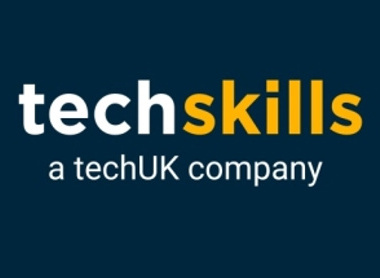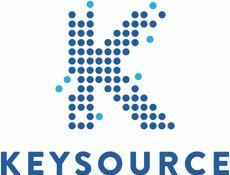
Why Work in a Data Centre?
Why the data centre sector is a career destination of choice
More about I'm an Engineer and useful resources
UK Data Infrastructure Employers
Training Providers and Recruiters
I'm an Engineer: Internet Zone

Internet Zone 2021: Overview
Internet Zone 2021: Overview

I'm an Engineer - Internet Zone: How to Register
Sign up for our Schools outreach by 8 October!
Career Pathways into Tech

Digital T Levels
T Levels are a new, 2-year qualification for 16 to 19 year olds.

TechSkills
TechSkills, a techUK company, brings together employers and educators to develop the digital talent industry needs. Our mission is to create and promote industry-valued pathways into digital careers.
Busting tech career myths
Common misconceptions disproved.
#1 The tech sector is only for maths/technologically inclined geniuses

You don’t have to be a tech genius to work in the sector. It doesn't matter if technology isn’t your thing - the sector needs more than developers and programmers. It needs people with skills from across the board, including those with creativity, critical thinking, and more, meaning that there is something for everyone. Whatever you’ve studied or trained for, there is a place for you to grow within the tech sector.
#2 Tech jobs need a university level education

It’s possible for anyone to get into tech – a university education is not a must have. There are a number of vocational and academic pathways, including initiatives such as T Levels, Apprenticeships, Graduate Schemes that companies may have for you to access jobs.
#3 A tech career means being stuck at a desk

If your worst fears include being stuck behind a desk and fluorescent lights, your worries can stop here. The UK’s tech sector is fast outpacing the rest of the UK in terms of economic growth. With the number of job opportunities on the rise, the types of careers and working styles have never been higher. This could include hybrid working such as working from home to working on project sites. Being on the cutting edge of tech means that anything is possible.
#4 Women are not interested in working in tech

Women are interested in tech. They just don’t make up a large enough part of the workforce. Women are underrepresented across the STEM sectors, in particular the tech industry where women make up only 17% of the workforce. But the sector is extremely self-aware of its diversity problem and employers and non-profits are working hard to remedy this. With greater awareness and the rise of organisations such as The Tech Talent Charter, WISE campaign and Tech She Can, working towards better access and promotion of STEM to young girls, we can change this. Together we can challenge stereotypes in the sector.
#5 Automation will make jobs in tech obsolete
#6 People from diverse backgrounds don't work in tech

The tech sector is doing its upmost to attract and recruit people from different backgrounds. The industry supports a number of initiatives that promote diversity in tech, whether that is doing outreach work to ensure that young people regardless of their background are inspired into tech and can see role models that look like them, or initiatives that help build more inclusive workplaces for those with different accessibility needs.
More digital career stories
Embracing independence and a new career in technology with Sally

When Sally left sixth form college, she felt she had gotten everything she could from the mainstream education system and she was ready to start a new chapter and her career.
“I knew I wanted to go into the technology industry so I felt that experience in a tech role would be much more valuable than a degree, which was validated by a lot of people I spoke to in the sector,” she explains. “Being able to earn while I learned was also one of the main reasons I chose to go down the apprenticeship route.”
Starting an apprenticeship with UKFast, Sally says she had all the usual experiences you might get at university – meeting new friends, going out with the team and learning new skills – but that was combined with the freedom to follow some of her biggest passions. “I feel strongly about increasing the number of women in STEM careers, particularly women in tech, and I have been given the opportunity to ignite the passion for tech in young girls and women with projects such as the UKFast Digital Challenge Badge that we created in conjunction with Girlguiding.”
The strength-based approach to developing talent at UKFast has really suited Sally. “If you’re good at something then you will probably be doing it in your job! This means you’re constantly building on your strengths and refining your skills. We also get as much support as we need in areas we may feel we are less strong, that means knowledge and skills are continually improved across the board at UKFast.” Find out more.
From the armed forces to Salesforce – Shane’s journey to a new career in tech

Having spent 17 years in the army, serving in the likes of Iraq, Afghanistan and Kosovo, Shane Whittingham was not sure where to go next. An ankle injury meant he could not join the family construction business – but having worked in communications while on the frontline, looking after the IT infrastructure for the forces – he had the kinds of skills the UK tech industry is looking for and he just had to find a way in.
Shane discovered Vetforce, a Salesforce programme supported by FDM Group, which prepares current service members, veterans and military spouses for civilian careers in IT, consulting or sales, through career specific training.
“The Vetforce programme provided me with a new lease of life that enabled me to learn at my own pace through the virtual learning environment while sustaining employment,” explains Shane. “I’ve had the opportunity to take world-class certifications that will enhance my career prospects.”
Just a few weeks after passing his exam, Shane joined St James’s Place, as a Salesforce Product Support Manager and he has since gone on to join global communications network, OneWeb.
“At home and through after hours work, I was able to grow my profile and skills, get some experience in cloud-based systems and in CRM, and to step into a new career,” he explains.
“After 17 years in the army, I’ve already had a full career, but this has given me the opportunity to grow in a new direction and show employers that I have that ability to take on new skills. It’s a massive drive for me to still provide for my family. That’s very important.” Read more.
Cinderella combines caring responsibilities with learning thanks to a degree apprenticeship

After completing her A levels, Cinderella looked at various routes to continue her higher education including full-time degrees and degree apprenticeships. However, she faced resistance
from her family to consider the apprenticeship route as they felt that a full-time degree was the only option.
As her mother was seriously ill, Cinderella decided to look at full-time degree options closer to home. Cinderella embarked on an electronics and engineering degree but felt that the degree wasn’t right for her and after her mother died, Cinderella became a full-time carer to her siblings and put her studies on hold.
Over time, Cinderella decided to review her study options and resonated with the degree apprenticeship route. She needed to earn a salary, and this seemed like a viable option. “I kept hearing
more and more about degree apprenticeships and liked the idea of learning while earning. By this point, after a lot of searching, I’d set my heart on doing software engineering.”
Cinderella is now encouraging her younger siblings to pursue a degree apprenticeship and they are all looking forward to the opportunity. The Tech Industry Gold degree apprenticeship opportunity at Fujitsu and studying at Manchester Metropolitan University has provided Cinderella with an abundance of work prospects and offers excellence in academia.
Cinderella is now a Software Engineer studying for a Tech Industry Gold Digital Degree Apprenticeship at Manchester Metropolitan University.
The sky’s the limit for Alexander Gittings with Cisco Networking Academy

As he was approaching the end of school, Alexander Gittings had two big passions: PE and IT. After considering his options, he decided to go down the IT route, knowing his experience as a PC
Gamer, hosting LAN parties, could be leveraged and enhanced. This pushed Alex to apply for a few Universities with computer networking courses, and he ended up selecting Birmingham City University (BCU) for several reasons, including its close affiliation with Cisco Networking.
Cisco Networking Academy leverages its expertise in Cyber security, Programming, Networking and IT to deliver courses that help develop these skills through public-private partnerships. Since 1999, more than 260,000 students in the UK have participated in the Cisco Networking Academy program. Courses prepare students for industryrecognised certifications (like Cisco Certified Network Associate - CCNA, or CCNA Cybersecurity Operations), further education, or entry-level and intermediate careers.
Alex’s time at BCU had opened many pathways. He completed computer networking certifications such as CCENT, CCNA and CCNP, some of which were achieved through the Cisco NetAcad platform. He was also one of four students accepted for an internship role at Cisco with the Solutions Validation Services team. During the internship, he learned many things like virtualisation, automation, ACI, large service provider, testing and much more. Furthermore, this enabled him to work part-time at Cisco for the same team remotely as a PHP developer.
A few years on and now he is a full-time Professional Services Consultant at Axians UK. He followed pathways that aligned closely with his passion and throughout this journey he never gave up until he accomplished his aim. Looking towards some future goals, he would like to teach, to impart his skills and knowledge gained, and also pursue a pilot’s license. Read more.
Bringing apprenticeship opportunities to a new audience with Microsoft

20-year-old Elliott Garwood was struggling to find the right apprenticeship but found the perfect role at change management business and Microsoft partner, Hable, using Microsoft’s Apprenticeship Connector. “Apprenticeship pathways are not easy to find or navigate and you can be put off in thinking a digital apprenticeship is not for you,” says Garwood.
“I believe COVID-19 will open this route up to a lot more people – the team works fully online and the flexible training means I have been able to move cities while earning and learning. I have also quickly realised that I am working for a company that listens to my ideas and I feel I have a role to play in shaping their future, which may not have been my experience if I had taken a different route.”
Microsoft launched its online apprenticeship platform to connect more jobseekers with companies who need apprentices. A partnership between GetMyFirstJob and Microsoft, it aims to simplify the apprenticeship process by listing vacancies across Microsoft’s network of partners and customers. The Connector also helps Microsoft’s partners and customers promote their apprentice vacancies to a larger and more diverse range of candidates.
“Digital apprenticeships are one of the best routes to well-paid careers in businesses of all types, not just in tech,” says Clare Barclay, CEO, Microsoft UK. “Yet even in the current jobs market, the reality is there are many vacancies going unfilled.”
Small businesses in particular are struggling to fill apprenticeship vacancies, and Sean O’Shea, Managing Director of Hable, believes the Connector will put him in touch with the talent he is looking for: “We were in a fortunate position that our business was thriving during the pandemic. Despite our eagerness to help people start their career, we struggled to promote and reach candidates. We really value the fresh perspective apprentices bring to our business and, backed by the Microsoft brand, the Apprenticeship Connector will fast track the apprenticeship process to find talent to build our workforce and transform the future of work.” Find out more.
BT’s partnership with Exeter University powers a pipeline of talent

Degree Apprenticeships offer an innovative and cost-effective way of attracting, training and retaining high-calibre employees and graduates to your business. Any organisation that pays the apprenticeship levy is able to hire an apprentice to recoup the investment already made. BT has been attracting high calibre digital apprentices after partnering with the University of Exeter on the delivery of Degree Apprenticeships.
“As an employer, we pay a lot in levy funds each year and it is in our interest to work out how best to use this money,” explains Carol Fletcher, Head of Academic and Research Partnerships at BT.
“Apprenticeships are a really exciting opportunity for us to mold apprentices into what best suits our business needs, and a great opportunity for the apprentice to earn valuable industry experience while gaining a degree.”
Carol chose to partner with the University of Exeter – a Russell group institution already delivering the programme to many different companies from a variety of industries. BT has recruited
apprentices for two consecutive years to the fouryear programme, with a cohort spread across two departments.
However, it hasn’t always been plain sailing. Carol explained: “Being a manager at BT during the running of the programme has been a learning experience, particularly as we weren’t used to
employing 18-year olds. But the relationship with Exeter has been fantastic. We know that we can always email or phone the Degree Apprenticeships team and they will respond promptly to support us in overcoming any problems.”
The partnership is developing and BT intends to recruit more apprentices each year. In conjunction with the apprenticeship programme BT has also developed research relationships, and has PhD students with Exeter. “We are involved in the Level 7 Data Science trailblazer and would be keen to develop our relationship with Exeter in this area. In general, we are interested in the variety of potential business partnership offerings that we can develop in the future with Exeter, not just apprenticeships.”
Headline Sponsor

Gold Sponsors



For more information please contact:

Nimmi Patel
Nimmi Patel is the Head of Skills, Talent and Diversity at techUK. She works on all things skills, education, and future of work policy, focusing on upskilling and retraining. Nimmi is also an Advisory Board member of Digital Futures at Work Research Centre (digit). The Centre research aims to increase understanding of how digital technologies are changing work and the implications for employers, workers, job seekers and governments.







































































